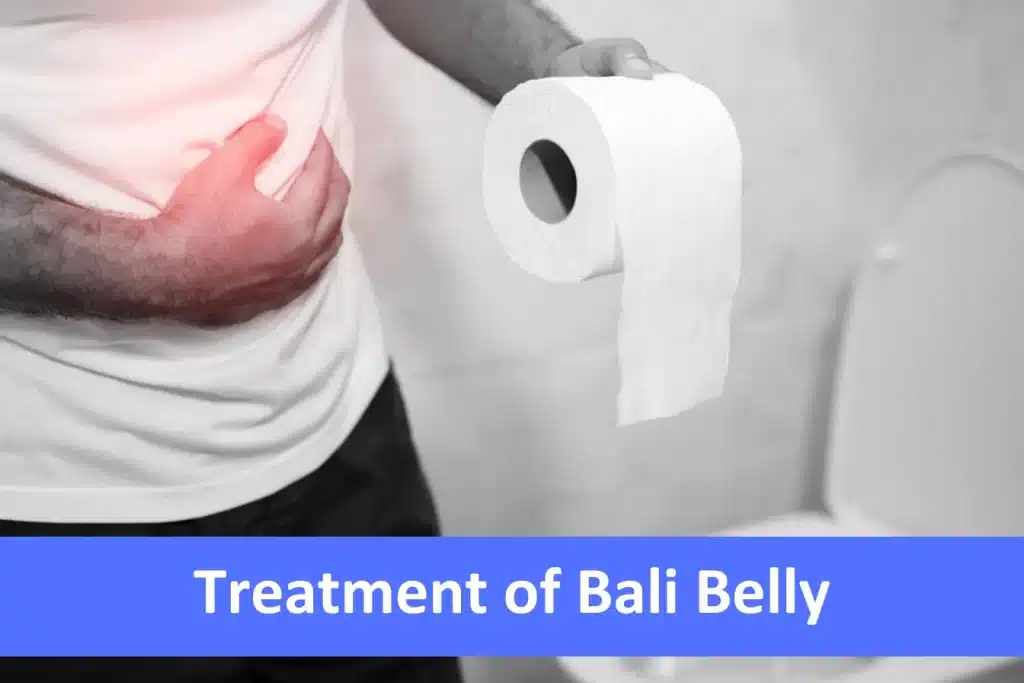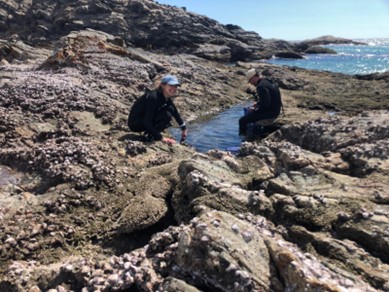Dealing With Bali Belly: A Practical Guide For Travelers

Table of Contents
Preventing Bali Belly: Proactive Measures for a Healthy Trip
Taking proactive steps significantly reduces your risk of experiencing Bali Belly. By following these food safety and hygiene practices, you can significantly minimize your chances of falling ill.
Food Safety Practices: Safe Eating in Bali
Food safety is paramount when it comes to avoiding Bali Belly. Even the most delicious Balinese delicacies can harbor unwelcome bacteria if not handled correctly.
- Choose reputable restaurants: Opt for busy establishments with high turnover; this often indicates fresh ingredients and proper food handling. Look for places with good hygiene practices visibly apparent.
- Cook it thoroughly: Avoid raw or undercooked meats, seafood, and eggs. Ensure your food is steaming hot when served.
- Peel it or skip it: Peel fruits and vegetables yourself, or choose pre-peeled options from reliable sources. Avoid consuming produce that might have been washed with contaminated water.
- Avoid questionable ice and tap water: Never consume ice from unknown sources, and strictly avoid drinking tap water. Stick to bottled water throughout your trip.
- Purify your water: If you're unsure about the source of your drinking water, consider using water purification tablets or a reliable water filter.
Hygiene Habits: Preventing Contamination
Maintaining good hygiene is crucial in Bali Belly prevention. Regular handwashing is your first line of defense.
- Wash your hands frequently: Wash your hands thoroughly with soap and water, especially before eating and after using the restroom.
- Use hand sanitizer: Carry hand sanitizer with you and use it when soap and water aren't available.
- Avoid touching your face: Minimize touching your face, especially your eyes, nose, and mouth, to prevent the transfer of germs.
Smart Food and Drink Choices: Safe Food Selection in Bali
Making smart choices about what you eat and drink drastically reduces your Bali Belly risk.
- Stick to bottled water: Always drink bottled water, even when dining out. Check the seal to ensure the bottle hasn't been tampered with.
- Be cautious of street food: While tempting, be wary of street food, especially if hygiene standards aren't evident. Choose vendors that appear clean and whose food is freshly prepared.
- Limit dairy: Avoid dairy products, particularly if you're uncertain about their origin and refrigeration.
Treating Bali Belly: Easing Symptoms and Seeking Help
Even with the best preventative measures, Bali Belly can sometimes strike. Knowing how to manage symptoms and when to seek medical attention is vital.
Home Remedies for Bali Belly
For mild cases of traveler's diarrhea, some home remedies can help ease symptoms.
- Oral Rehydration Solutions (ORS): Replenish lost fluids and electrolytes with oral rehydration solutions (ORS), readily available at pharmacies. This is crucial to prevent dehydration.
- Probiotics: Probiotics can help restore your gut flora and aid in recovery. Consider taking a probiotic supplement.
- Rest: Get plenty of rest to allow your body to fight off the infection. Avoid strenuous activities.
When to Seek Medical Attention: Severe Symptoms
Some Bali Belly symptoms require professional medical attention. Seek medical help immediately if you experience:
- Severe dehydration: Signs include dizziness, excessive thirst, and decreased urination.
- Bloody stools: This could indicate a more serious infection.
- High fever: A persistent high fever is a cause for concern.
- Persistent vomiting: Inability to keep down fluids warrants immediate medical attention.
Find reputable medical facilities in advance and consider purchasing comprehensive travel insurance that covers medical emergencies abroad.
Packing Essentials for Bali Belly Prevention and Treatment
Packing a few key items can make a world of difference in preventing and managing Bali Belly.
- Oral Rehydration Salts (ORS): Pack several packets for easy access.
- Probiotics: Include probiotic capsules or powder in your travel kit.
- Hand Sanitizer: A travel-sized bottle of hand sanitizer is essential.
- Anti-diarrheal Medication (Consult Doctor First): Speak to your doctor before traveling about appropriate anti-diarrheal medication.
- Anti-bacterial Wipes: These are useful for cleaning surfaces and hands when soap and water aren't available.
Enjoy Your Bali Trip—Bali Belly-Free!
Preventing Bali Belly involves a combination of smart food choices, meticulous hygiene, and preparedness. By following these tips, you significantly reduce your risk of experiencing traveler's diarrhea. Remember that prompt treatment is crucial if symptoms arise. Plan your Bali adventure with confidence by following these practical tips to avoid Bali Belly and make the most of your incredible trip!

Featured Posts
-
 8 Pilihan Oleh Oleh Kuliner Unik Dan Lezat Dari Bali Bukan Pie Susu
May 28, 2025
8 Pilihan Oleh Oleh Kuliner Unik Dan Lezat Dari Bali Bukan Pie Susu
May 28, 2025 -
 Alcarazs Soaring Confidence Vs Swiateks French Open Challenges
May 28, 2025
Alcarazs Soaring Confidence Vs Swiateks French Open Challenges
May 28, 2025 -
 Discovery Of 13th Century Structures At Binnenhof
May 28, 2025
Discovery Of 13th Century Structures At Binnenhof
May 28, 2025 -
 Bennedict Mathurins Latest Message A Defining Moment For The Indiana Pacers
May 28, 2025
Bennedict Mathurins Latest Message A Defining Moment For The Indiana Pacers
May 28, 2025 -
 The Future Of Video Creation Examining Googles Veo 3 Ai
May 28, 2025
The Future Of Video Creation Examining Googles Veo 3 Ai
May 28, 2025
Latest Posts
-
 Trumps Iran Deal Is Israel Facing Encirclement
May 31, 2025
Trumps Iran Deal Is Israel Facing Encirclement
May 31, 2025 -
 Israels Concerns Trumps Iran Talks And Regional Isolation
May 31, 2025
Israels Concerns Trumps Iran Talks And Regional Isolation
May 31, 2025 -
 Trump Advisers Plan B New Tariff Strategy After Court Defeat
May 31, 2025
Trump Advisers Plan B New Tariff Strategy After Court Defeat
May 31, 2025 -
 The Shifting Global Balance Assessing Us And Chinese Military Strength
May 31, 2025
The Shifting Global Balance Assessing Us And Chinese Military Strength
May 31, 2025 -
 Us Military Spending Vs China A Comparative Analysis
May 31, 2025
Us Military Spending Vs China A Comparative Analysis
May 31, 2025
